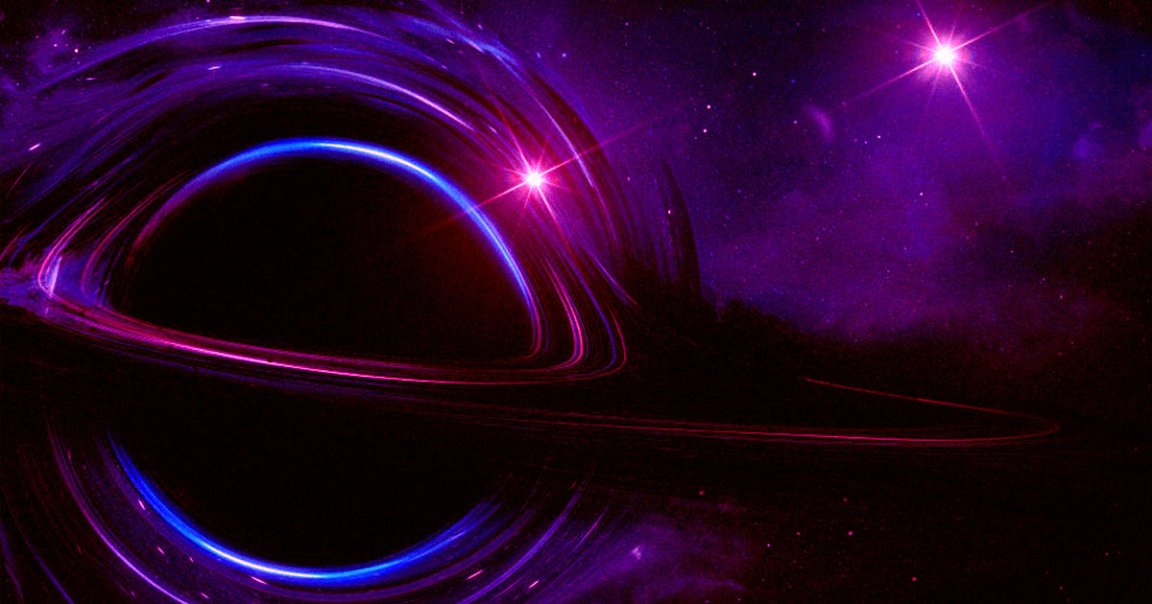
Wobble Bass
A team of astronomers has suggested that primordial black holes (PBH) are passing by our solar system and wreaking havoc on the orbits of planets within it, causing them to “wobble” and “rock.”
According to their hypothesis, one of these ancient relics — which are thought to have been created a mere second following the Big Bang well around fourteen billion years ago — makes a visit roughly once a decade, as detailed in a yet-to-be-peer-reviewed paper.
These objects are of particular interest to scientists as they suspect them to be primarily made of dark matter, a hypothetical substance that doesn’t interact with light or the electromagnetic field, yet is estimated to make up approximately 27 percent of the stuff that makes up the universe.
But as Live Science reports, it’s an exotic and unproven hypothesis — but a delightful one all the same, heralding a universe full of surprises and yet-to-be-observed phenomena.
Pea Shooter
These hypothetical PBHs would be absolutely minuscule, “between the size of a hydrogen molecule and the size of an average bacterium,” as the authors from the Center for Theoretical Physics at the Massachusetts Institute of Technology told Live Science.
Despite their tiny mass, they may still be able to cause a planet to act erratically, according to the researchers.
If a “PBH flies by a planet, it starts that planet wobbling or rocking slightly around the path it was taking before the flyby,” the authors told Live Science. As a result, the measured distance between the planets and the Sun would oscillate over time.
The team simulated how the trajectories of planets would be altered if an object with roughly the mass of an asteroid would come within just two astronomical units — twice the distance between the Earth and the Sun — of our star. The resulting wobble could range from anywhere between an inch to several feet, according to their calculations.
To come to a more precise answer, the researchers write in their paper, they’ll need to “use more precise Solar System simulations and decades of high-precision observational data.”
More on black holes: There May Be Small Black Holes Inside Some Stars, Scientists Say